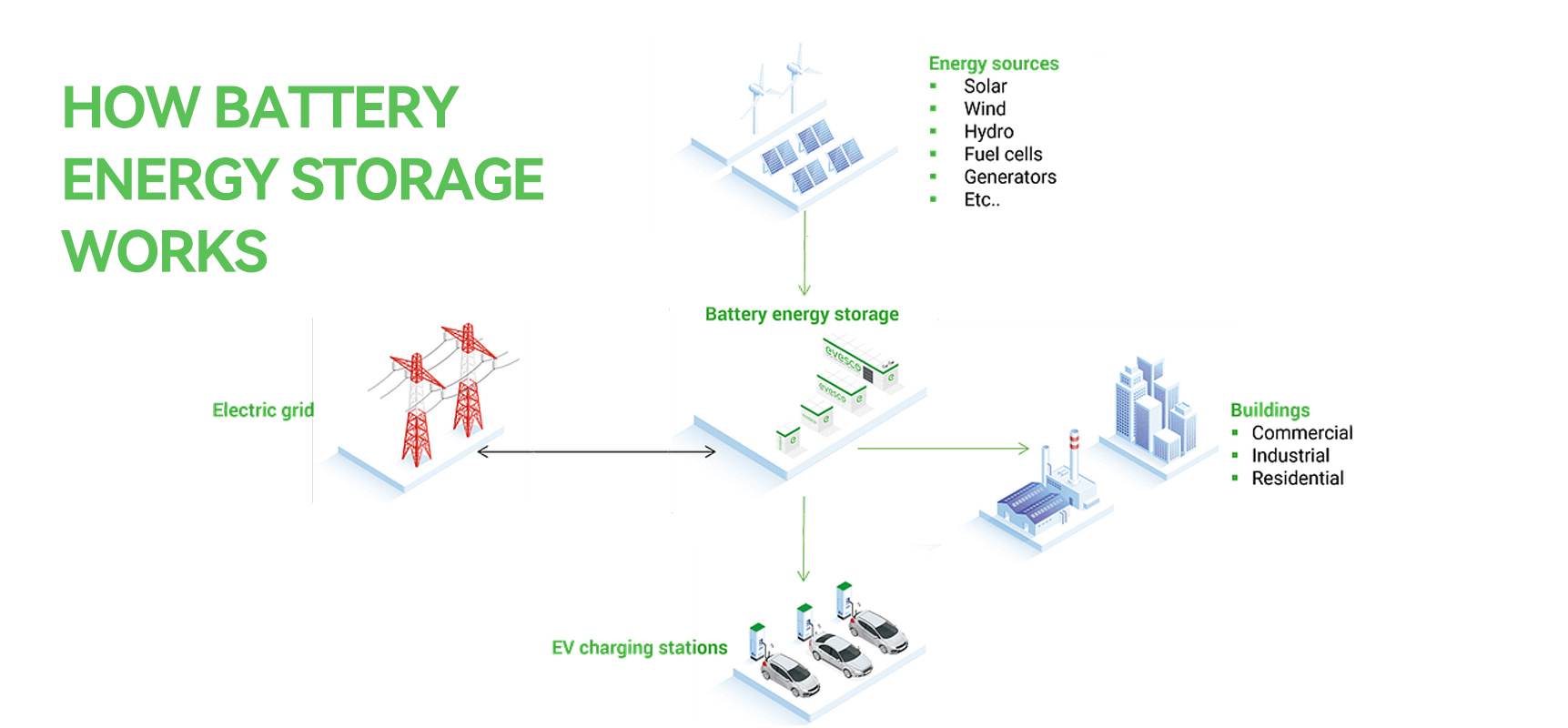BATTERY ENERGY STORAGE: HOW IT WORKS, AND WHY IT'S IMPORTANT
Jan 09, 2024
HOW BATTERY ENERGY STORAGE WORKS
At its core, a battery stores electrical energy in the form of chemical energy, which can be released on demand as electricity. The battery chargino process involves converting electrical energy into chemical enegy, and discharging reverses the process. Battery energy storage systems manage energy charging and discharging, often with inteligent and sophisticated control systems, to provide power when needed or most cost-efective.The components of a batery energy storage system generally include a battery system, power conversion system or inverter, battery management system, environmental controls, a controller and safety equipment such as fire suppression, sensors and alarms.
THE IMPORTANCE OF BATTERY ENERGY STORAGE
For several reasons, battery storage is vital in the energy mix. It supports integrating and expanding renewable energy sources, reducing reliance on fossil fuels. Storing excess energy produced during periods of high renewable generation (sunny or windy periods) helps mitigate the intermittency issue associated with renewable resources. It also provides grid stability and resilience, as t can respond quickly to grid demand and supply changes.
THE BENEFITS OF BATTERY ENERGY STORAGE SYSTEMS
A battery energy storage system (BESS) offer severa compelling benefits that make them an increasingly important part of our energy andscape.
These include:
Grid Stabilization
A BESS can absorb or release electrical power almost instantly, providing valuable services in balancing power supply and demand, stabilizing the grid, and maintaining a steady frequency.
Renewable Energy Integration
A BESS can store excess enerav roduced from renewable enerav sources ike wind and solar when production exceeds demand and then release it when demand exceeds production, such as when the sun is not shininc, or the wind is not blwing.This helps deal with the intermittent nature of these energy sources and makes them more reliable and usable.
Peak Shaving
By storind eneroy during low-demand periods and releasina it durina high-demand periods. a BESS can help to reduce electricity demand on the grid during peak periods.This peak shaving' can reduce the need for peaker plants, which are expensive and often powered by fossil fuels, leading to both cost and environmental benefits.
Energy Arbitrage
With the capability to store energy when prices are ow and dispatch it when prices are high, a BESS facilitates energy arbitrage, potentialy creating significant financial savings or generating additional revenue streams.
Backup Power
Grid Independence and Self-Consumption
A BESS enables greater energy self-sufficiency for homes and businesses with their own renewable energy generation (like solar panels on the roof). They can store excess power generated from on-site sources for use when needed, reducing their reliance on the grid and allowing more efficient use of the generated power.
Support for Electric Vehicle Charging
With the rise of EVs, a battery energy storage system integrated with charging stations can ensure rapid charging without straining the power grid by storing electricity during of-peak hours and dispensing it during peak usage. Adding a BESS to an EV charqing station installation can also stretch the available capacity and help drastically reduce demand charges.